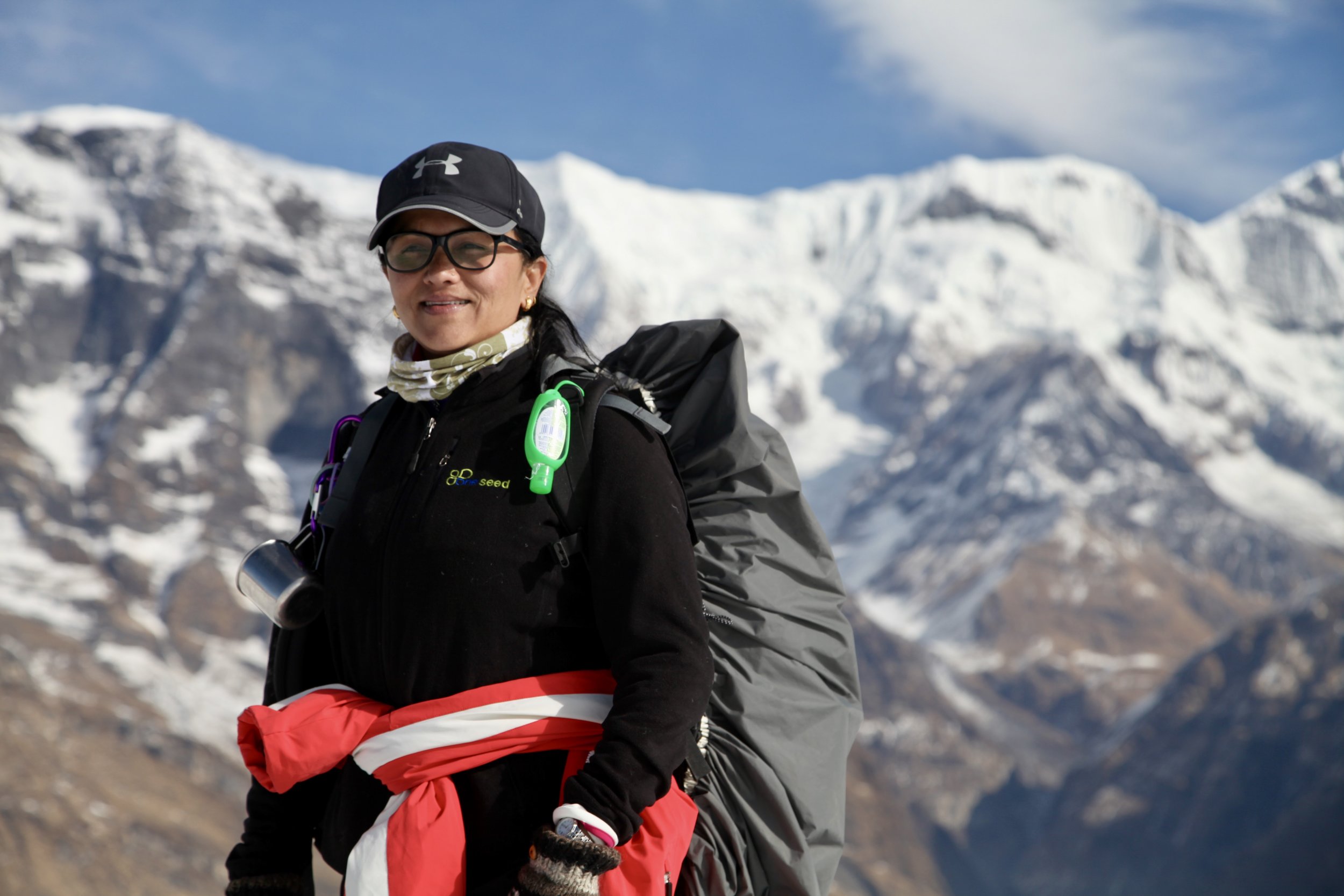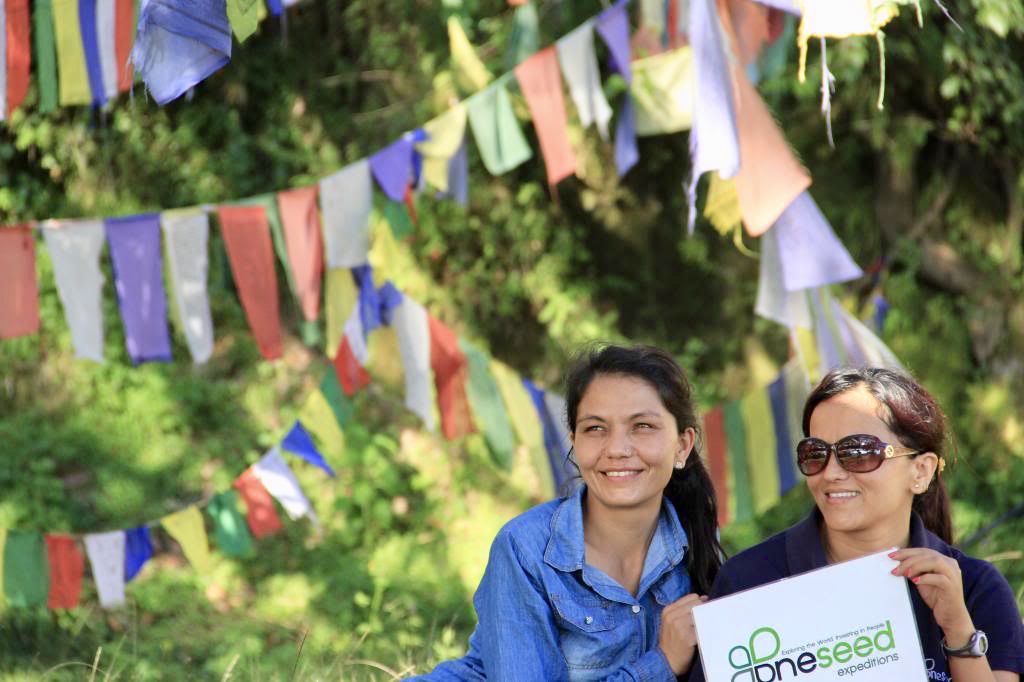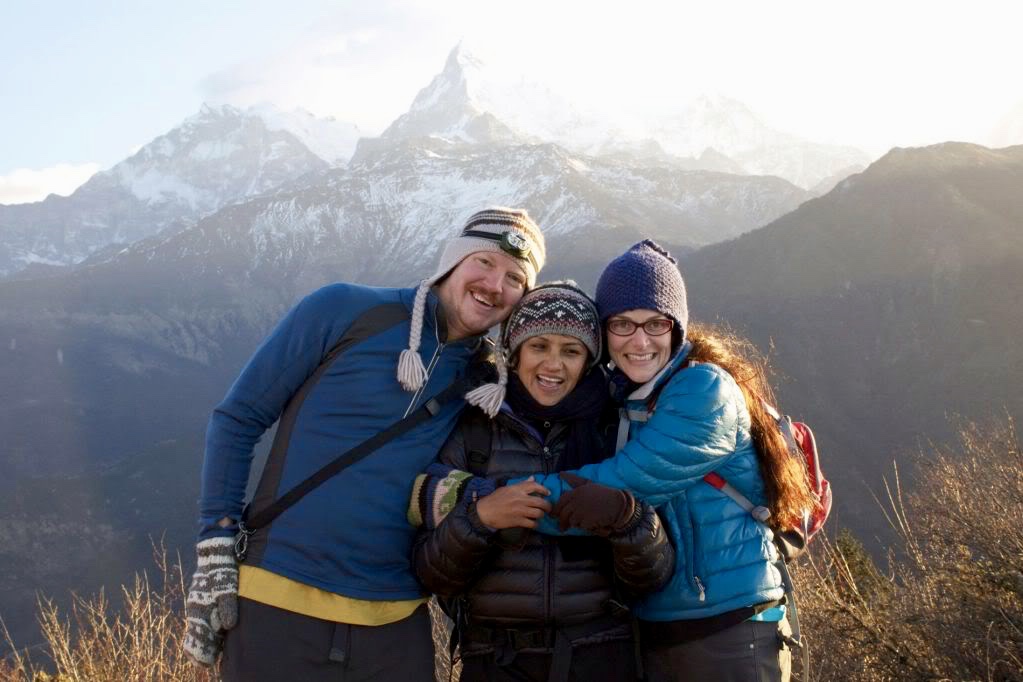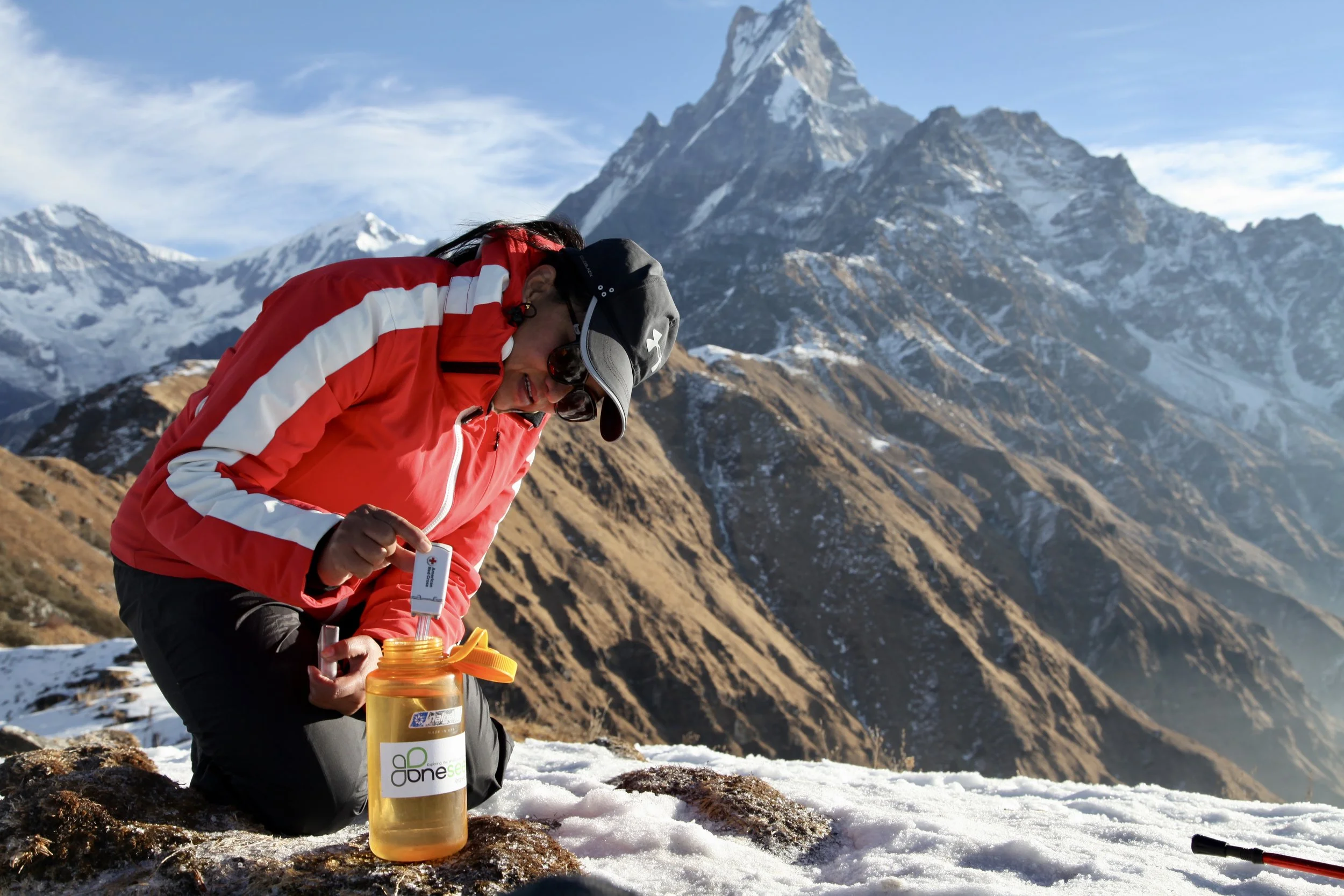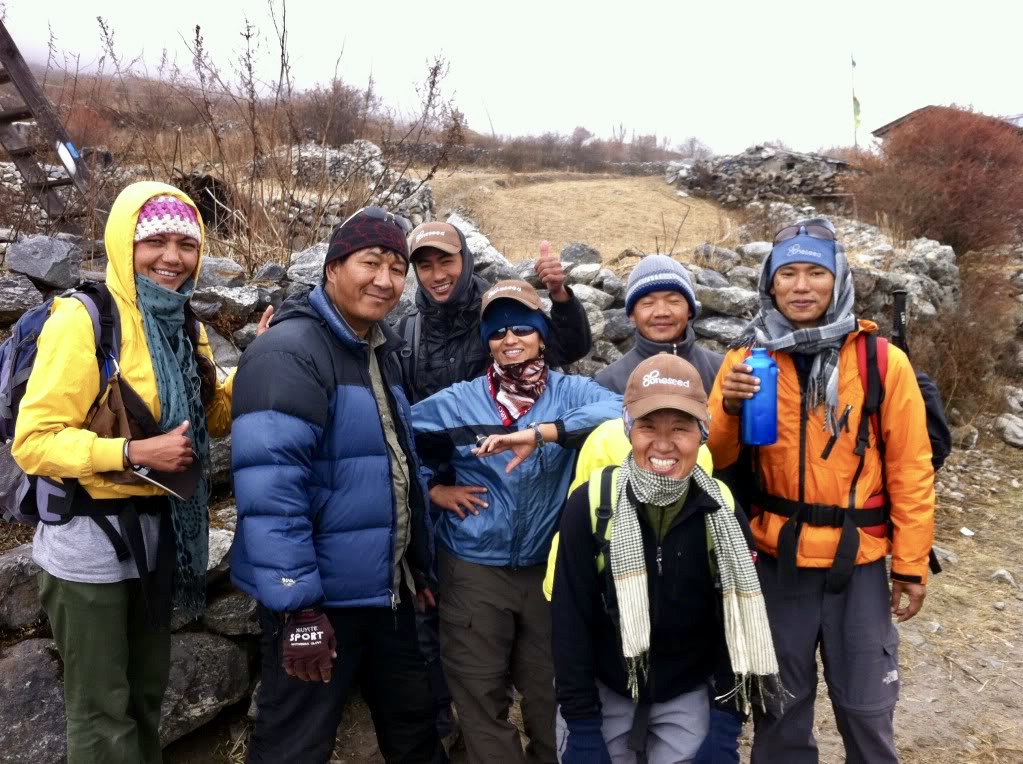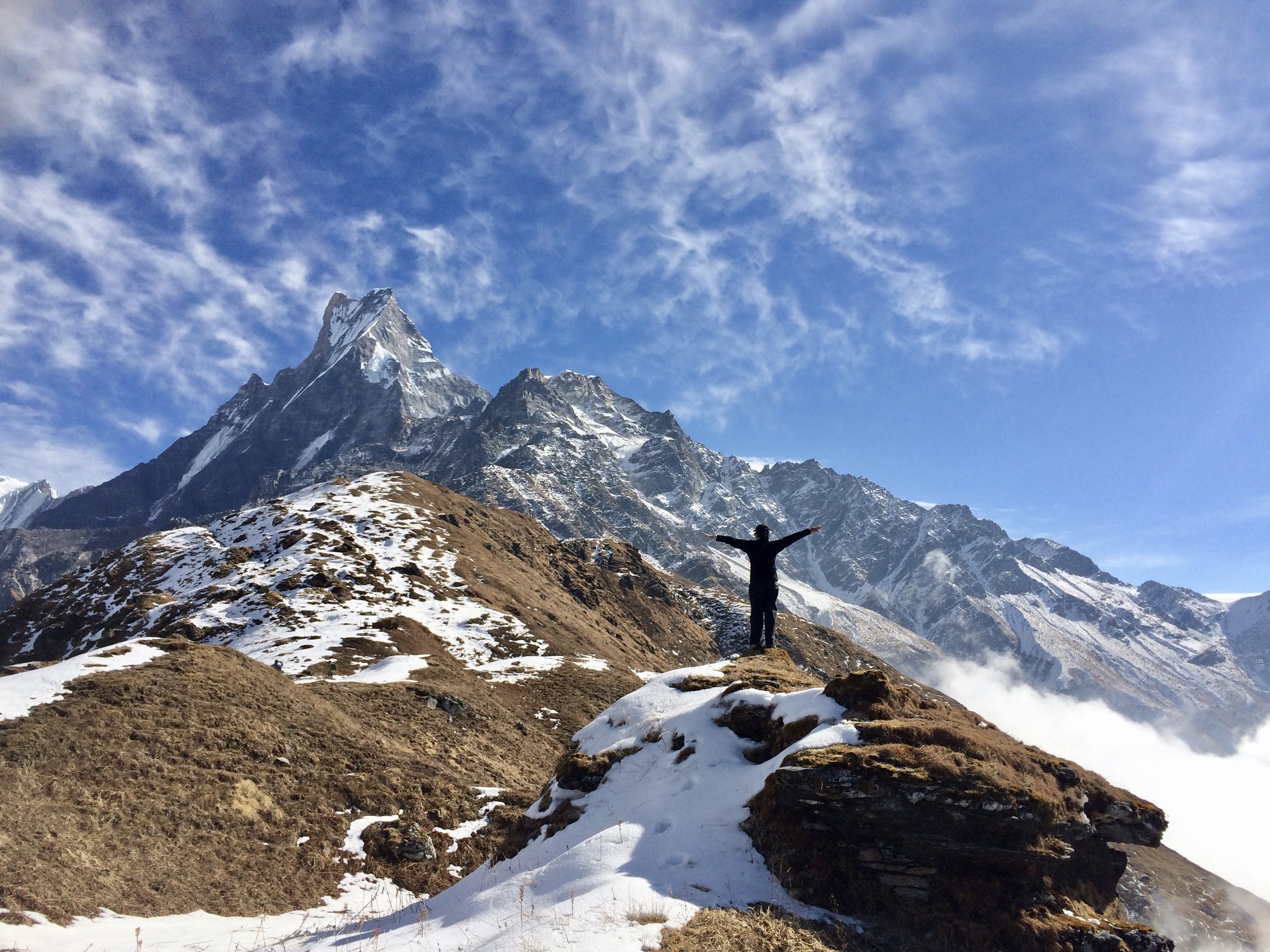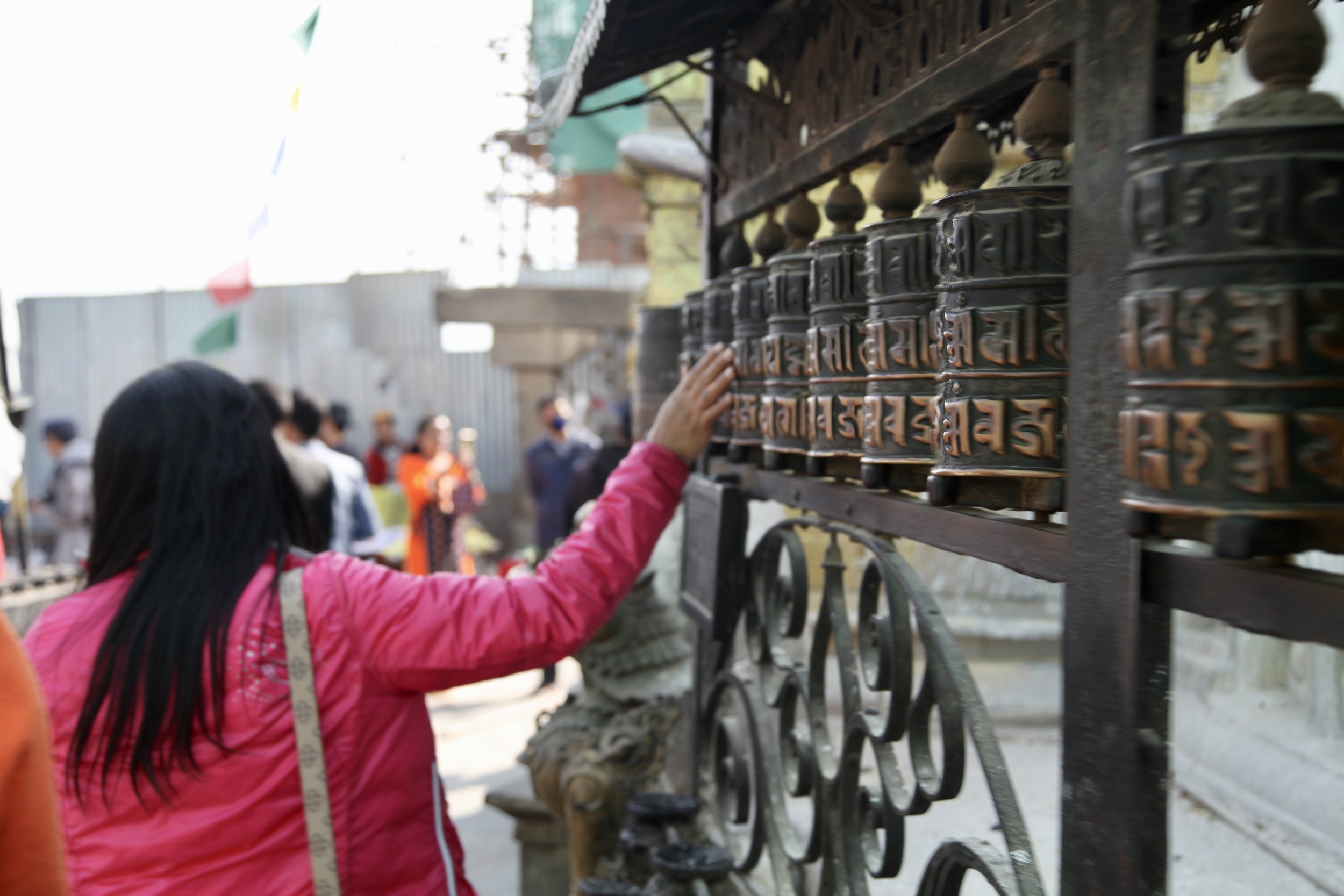Our local guides are the heart of OneSeed. All are passionate about giving travelers an experience filled with adventure, authenticity, and unforgettable moments. Every guide is trained in risk management, earns fair compensation, and is actively supported with professional development opportunities.
Take our Director of Nepal Guiding Operations, Bishnu Thapa, as an example of hard work and following your passion in the face of adversity. Bishnu began her foray in the trekking industry by working as a porter for three years (most guides begin as porters and are often considered “guides in training”). While working on her Master’s degree dissertation exploring how adventure tourism empowers women, she met OneSeed founder Chris Baker. Together, OneSeed Expeditions began to take shape with Bishnu’s vision and habit of pushing boundaries laying the groundwork. Following in her footsteps, OneSeed is actively employing women guides and porters in Nepal.
Since joining the OneSeed team, Bishnu has completed another degree (M. Phil. in Anthropology) and conducted her research (for M.Phil. dissertation) on coping strategies in small hillside communities after the 2015 earthquake. During her free time, Bishnu enjoys preparing Nepali pickle recipes and being in the mountains.
We asked Bishnu about her time at OneSeed, the future of female guiding, and why everyone needs to visit Nepal:
What is your favorite guiding memory you've had with OneSeed?
My favorite memory came on the Annapurna discovery trek, March 14, 2018. I had three clients from Canada who were cousins. We had lots of fun and were constantly smiling and laughing; even when one of them had stomach issues during the trek. They were awesome people and I have great memories from that trip. I felt that my trek with them wasn’t even work. Truly they respected everyone and understood how hard we worked for them professionally to ensure their satisfaction.
What can guests see in Nepal that they can’t experience anywhere else?
Nepal has the highest peaks in the world. It’s incredibly remote, has a unique culture where the old tradition still exists, it’s the birthplace of Buddha, and is filled with smiling and friendly people. Previous clients have said that Nepal is so naturally beautiful–especially the landscape and white capped mountains. They also rave about how kind and generous the people are. Regardless if they are poor, they are always smiling and offer to help you in any situation of need.
What role do social expectations play in women being guides?
Patriarchal norms and values still exist in Nepal. There are certain roles and expectations of what women can and can’t do. Women are supposed to look after the children, farm, and maintain household duties. Women are encouraged to be teachers, nurses, and near their home. Women guiding or trekking is viewed as a public job. Once women are out guiding, society automatically has a negative perception of them. For instance, they say, “this woman works outside away from her home, she must stay overnight somewhere. Maybe this woman is impure,” and they begin to think negatively. While I was trekking a few years ago some male guides teased and insulted me saying, “this is a man’s job. You are quite educated and you can do other work like be a teacher.” Very few people here believe that women need to participate in the outdoor industry. They believe they are too weak to be adventure guides.
In what way can women become more involved with guiding in Nepal?
Society needs to change its negative perception regarding the profession of women guides. We need to encourage women to work in public facing roles. Families need to trust and our society needs to provide education that should inspire women from a young age. Their family or society has to instill in them a belief that they can partake in any field they want. Women also need to be self motivated in their profession. There should be active job creation opportunities in order to encourage female guides in Nepal.


